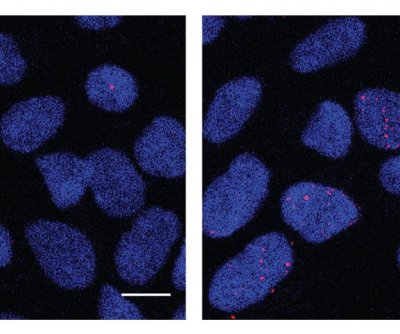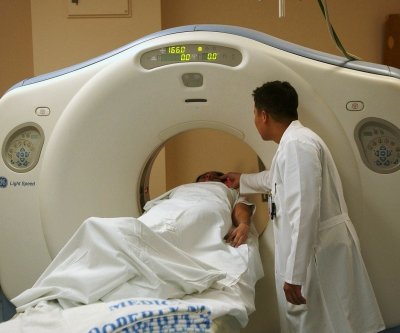
Study links vegetarian diet to fewer UTIs
The research couldn't prove a cause-and-effect link, but it showed people who eschewed meat had 16 percent lower odds for a UTI versus those who didn't.
by E.J. Mundell, HealthDay NewsUrinary tract infections plague millions of Americans. Now new research suggests that what they eat might have a role to play.
The Taiwanese study compared UTI rates among nearly 10,000 Buddhists living in the island nation, about a third of whom followed a strict vegetarian diet.
The research couldn't prove a cause-and-effect link, but it showed that people who eschewed meat had 16 percent lower odds for a UTI versus those who didn't.
The benefit was more pronounced among women. Female vegetarians had 18 percent lower odds of getting a UTI compared to women who ate meat, the study found.
Why might the foods people eat dictate UTI risk? As the researchers pointed out, these troublesome infections usually have their origin in microbes introduced via the intestinal tract, "particularly the species of Escherichia coli accounting for 65 percent to 75 percent of all urinary tract infections."
And they added that two meats -- poultry and pork -- are "the major reservoir" in the diet for E. coli.
The study was led by Dr. Chin-Lon Lin of Tzu Chi University in Hualien, Taiwan, and was published Jan. 30 in Scientific Reports.
As the researchers noted, UTIs strike about 1 in every 100 people worldwide, causing discomfort and distress. In women, especially, UTIs are among the most common type of bacterial infection, accounting for nearly 25 percent of all infections. UTI recurrence rates can range from 16 percent to 36 percent in younger women to 55 percent in postmenopausal women.
In the new study, Lin's group tracked UTI rates for Taiwanese Buddhists enrolled in a long-running study on the effects of a vegetarian diet on health. Of the nearly 10,000 people in the study, about 3,200 were vegetarian. Rates of UTI were tracked over a decade, and the vegetarians had significantly lower rates, the researchers found.
Two U.S. physicians who weren't connected to the study took differing views on the results.
"I would like the answer to UTI prevention to be as basic as to say that less meat means fewer UTIs," said Dr. Elizabeth Kavaler, a urologist at Lenox Hill Hospital in New York City. "But in the U.S. we cook our meat thoroughly, which kills E. coli bacteria that could be transmitted though infected meat."
"Secondly, E. coli is also present on vegetables, and can be transmitted through handling by workers with dirty hands," Kavaler noted.
Her advice: "Cook your meat through and wash your veggies, whether or not you get UTIs."
Another specialist believes there could be more to the diet-UTI link, however.
Dr. Jill Rabin is vice chair of education and development for obstetrics and gynecology at Northwell Health in New Hyde Park, N.Y. She agreed that "the importance of diet and lifestyle factors in the development of urinary tract infections cannot be overstated."
Rabin said one key reason for the finding might be that lowering the population of E. coli in the intestine "allows the gastrointestinal tract to become more acidic -- it is believed that a more acidic environment in the gut [and bladder] may reduce UTIs."
Vegetarian diets tend to also boost the level of fiber in the diet, and that might help prevent UTIs as well, Rabin added.
More information
For more about UTIs, visit the American Urological Association.
Copyright 2020 HealthDay. All rights reserved.

(0) Leave a comment
upi.com/6980595
Latest Headlines

Health News // 6 hours ago
Suicidal thoughts, self-harm sending more in U.S. to ER
Men and women are flooding America's emergency rooms because of suicidal thoughts and injuries from harming themselves, with the CDC this week reporting a 25.5 percent increase in ER visits for them from 2017 to 2018.

Health News // 16 hours ago
WHO declares coronavirus a global public health emergency
Jan. 30 (UPI) -- World Health Organization officials on Thursday declared the 2019 novel coronavirus outbreak a public health emergency of international concern.

Health News // 18 hours ago
U.S. reports first human-to-human coronavirus case
Jan. 30 (UPI) -- CDC officials on Thursday confirmed the first "person-to-person" transmission of 2019 novel coronavirus in the U.S. -- the husband of a woman who went to China. It's the sixth case in the country overall.

Health News // 13 hours ago
Strep throat could become untreatable, researchers warn
A new study warns that strains of bacteria that cause strep throat and "flesh-eating disease" appear close to becoming resistant to penicillin and other antibiotics known as beta-lactams.

Health News // 19 hours ago
DNA damage in brain cells may explain some forms of autism, study says
Jan. 30 (UPI) -- Researchers believe they have identified a pattern of DNA damage that occurs during brain cell division and development and potentially causes autism.

Health News // 19 hours ago
Annual CT screening for smokers may cut lung cancer deaths
A new Dutch study is being hailed as proof of the need for annual CT screenings of former and current longtime smokers to reduce deaths from lung cancer.

Health News // 22 hours ago
1 percent of doctors prescribe nearly half of opioids in U.S.
Nearly half of all opioid doses and more than a quarter of all opioid prescriptions in the United States come from 1 percent of health care providers, a new study says.

Health News // 1 day ago
Flavinols in fruits, vegetables may lower odds for Alzheimer's
Older adults who regularly consume a group of antioxidants called flavonols may have a decreased risk of developing Alzheimer's disease, a new study suggests.

Health News // 1 day ago
Massachusetts' health reforms helped catch more cancer early
Advanced-stage colon cancer diagnoses declined after Massachusetts expanded health insurance coverage, a new study finds.

Health News // 1 day ago
U.S. life expectancy up for first time in four years, rises to 78.7 years
Jan. 30 (UPI) -- Analysis of 2018 data by the CDC reveals that deaths from cancer, heart disease and other leading causes have either declined or remained unchanged -- including the first decrease for overdose deaths in 28 years.